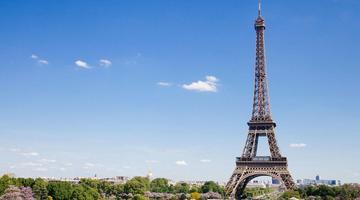Paris Heads to Japan to Exchange Solutions for Reconnecting with Nature & Culture
In spring of 2025, UNP+ lighthouse city Paris attended a series of events held in Kanazawa, Japan, co-organized by UNU-IAS, focused on the role of culture and citizen engagement in restoring urban ecosystems. The events brought together experts from 11 cities involved in the #GenerationRestoration Cities project, led by the United Nations Environment Programme (UNEP), which aims to address ecological degradation in urban areas through nature-based solutions.
A public symposium on 22 May, marking the International Day for Biological Diversity, featured restoration efforts from seven cities: Kanazawa, Kisumu, Istanbul, Mexico City, Paris, Seattle, and Toronto. Experts shared experiences on regenerating urban ecosystems while protecting and celebrating cultural heritage.
In her keynote lecture, Yulia Rubleva (Associate Programme Management Officer, Urban Nature, UNEP) emphasized the multiple benefits of urban ecosystem restoration — including climate resilience, public health, and community well-being. Ingrid Coetzee (ICLEI) highlighted cities as innovation hubs for sustainability. Wataru Suzuki (MOEJ) stressed the importance of aligning urban efforts with the Kunming–Montreal Global Biodiversity Framework (GBF) and advancing sustainable food systems.
Paris’s Oasis Schoolyards programme was among the restoration initiatives presented, demonstrating that small green spaces can have meaningful impact when communities are involved in designing nature together. This initiative reflects Paris’s commitment to fostering urban nature through participatory design, showing how compact interventions can yield significant environmental and social benefits.
The event also included restoration efforts from other cities: Toronto’s engagement with Indigenous communities in ecosystem management; Mexico City’s Altépetl initiative, which restored 5,000 hectares for agroecological production and trained 3,000 firefighters; and Kisumu’s park restorations that reduced the heat island effect, created jobs, and added recreational space.
A panel discussion moderated by Togo Uchida (ICLEI Japan) examined community-led regeneration and explored the connections between culture and nature. It emphasized the need for community empowerment, intergenerational communication, and the importance of small-scale initiatives. While political support was noted as vital, the discussion also acknowledged the challenges of balancing consensus-building with timely action.
In her closing remarks, Shinobu Yume Yamaguchi (Director, UNU-IAS) highlighted the essential role of communities in restoring urban nature and reaffirmed the value of local-global connections. The UNU-IAS Operating Unit Ishikawa/Kanazawa (OUIK) plays a central role in linking local practices to international frameworks like the GBF and the UN Decade on Ecosystem Restoration. This work contributed to UNEP’s recognition of Kanazawa as one of the first 11 Role Model Cities under the #GenerationRestoration Cities initiative.
“Paris’s participation in the Generation Restoration project underscores our commitment to weaving nature into the urban fabric. As a Lighthouse City in the Urban Nature Plans+ European project, we are proud to share our experiences—from transforming schoolyards into verdant oases to greening our streets —demonstrating that even in densely populated areas, nature can thrive. Engaging in this global dialogue allows us to exchange insights and co-create solutions that not only restore ecosystems but also celebrate cultural heritage, ensuring a resilient and inclusive future for all urban dwellers”
-Céleste Rouberol, City of Paris
The symposium concluded a series of workshops and site visits in Kanazawa, where participating experts exchanged best practices and developed joint strategies for advancing urban nature restoration. Paris will bring their learning back to the UNP+ Urban Nature Exchanges, ensuring that their learning trickles out to all UNP+ project cities. Learn more here.
Publishing date:

